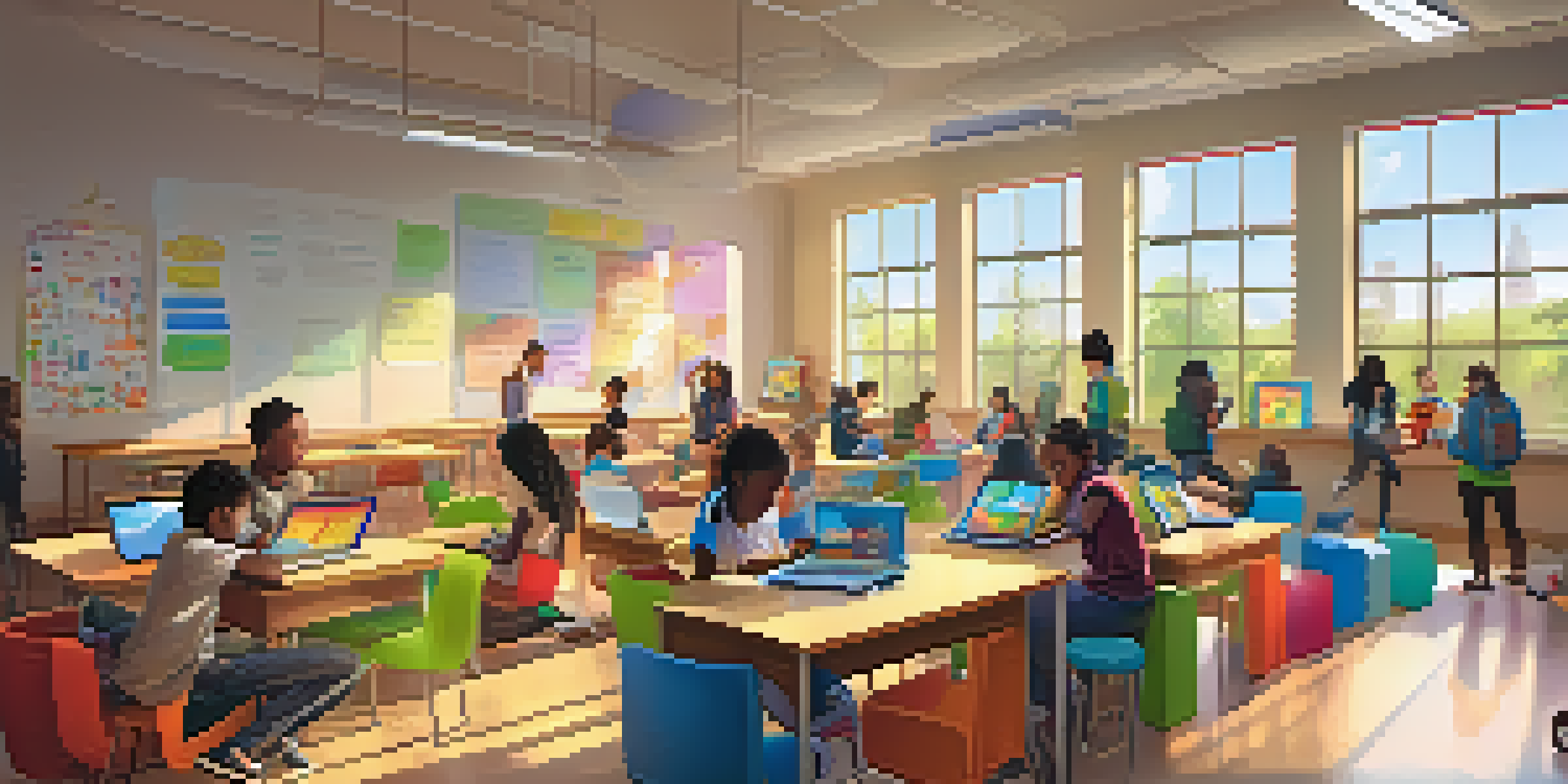Personalized Learning in the Context of Global Education Trends

Understanding Personalized Learning in Education
Personalized learning is an educational approach tailored to individual students' needs, interests, and learning paces. Rather than a one-size-fits-all curriculum, this method allows learners to engage with material that resonates with them, fostering a more meaningful educational experience. By focusing on each student's unique strengths and challenges, personalized learning aims to enhance motivation and improve academic outcomes.
The Rise of Global Education Trends
In recent years, global education trends have shifted towards inclusivity and adaptability, reflecting the diverse needs of students across the world. Factors such as technology advancement, cultural diversity, and economic changes play significant roles in shaping these trends. As educators strive to meet the demands of a rapidly evolving world, personalized learning has emerged as a key strategy to create more effective and engaging learning environments.
Personalized Learning Enhances Engagement
This educational approach tailors learning experiences to individual students' needs, fostering greater motivation and academic success.
Technology's Role in Personalized Learning
Technology plays a pivotal role in facilitating personalized learning, offering tools that cater to various learning styles. Digital platforms provide access to a wealth of resources, enabling students to learn at their own pace and revisit complex topics as needed. For instance, adaptive learning software can analyze a student's performance and adjust the content accordingly, ensuring that the learning experience remains relevant and challenging.
Cultural Considerations in Implementation
When implementing personalized learning strategies, it's crucial to consider cultural differences that influence education. Different countries and communities may have varying expectations and values regarding teaching and learning. By understanding these cultural nuances, educators can tailor their approaches to ensure they resonate with all students, promoting an inclusive atmosphere that respects diverse backgrounds.
Cultural Nuances Matter in Education
Understanding cultural differences is essential for implementing personalized learning strategies that resonate with diverse student backgrounds.
Challenges in Personalized Learning Approaches
Despite its benefits, personalized learning is not without challenges. One significant hurdle is the need for adequate training and resources for educators, who must be equipped to implement these tailored approaches effectively. Additionally, concerns about equity arise, as not all students may have equal access to the technology and support necessary for personalized learning to thrive.
Success Stories in Personalized Learning
There are numerous success stories of personalized learning transforming classrooms around the globe. For example, schools in Finland have adopted a student-centered approach, allowing for customized learning pathways that empower students to take charge of their education. Such initiatives demonstrate that when educators prioritize individual needs, students are more likely to engage deeply and achieve their academic goals.
Technology Supports Tailored Learning
Advancements in technology enable personalized learning by providing adaptive tools that cater to various learning styles and paces.
Future Directions for Personalized Learning
Looking ahead, personalized learning is expected to continue evolving alongside technological advancements and educational research. As artificial intelligence and data analytics become more integrated into educational tools, the potential to fine-tune learning experiences for each student grows. This forward momentum suggests a future where personalized learning is not just an option but a standard practice in global education.
Conclusion: Embracing the Personalized Learning Revolution
In conclusion, personalized learning represents a significant shift in how education is approached worldwide. By embracing this trend, educators can create more dynamic and effective learning environments that cater to the unique needs of each student. As we move forward, fostering collaboration among teachers, students, and technology will be crucial in harnessing the full potential of personalized learning.